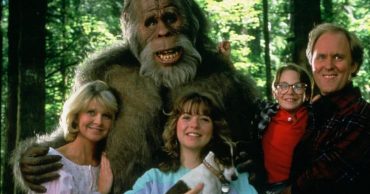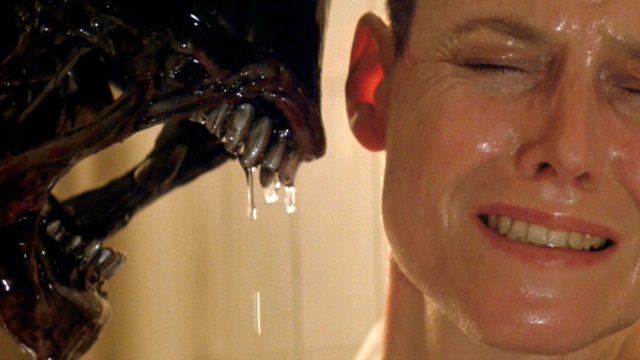
There seem to be certain, immutable truths when it comes to movies: statements so profound and absolute that to balk against them is tantamount to the highest heresy. And to be fair, there’s a reason why they’ve become mantras to cinephiles the world over: there’s a certain grain of truth in even the most outlandish of these claims.
The Dark Knight is the best Batman movie. It’s not a matter of taste or preference, it just is. Despite their best efforts — a few of which have even been watchable — there has never been a good adaptation of a video game. And, in light of this weekend’s big release, the Alien franchise hasn’t had a good movie since Aliens.
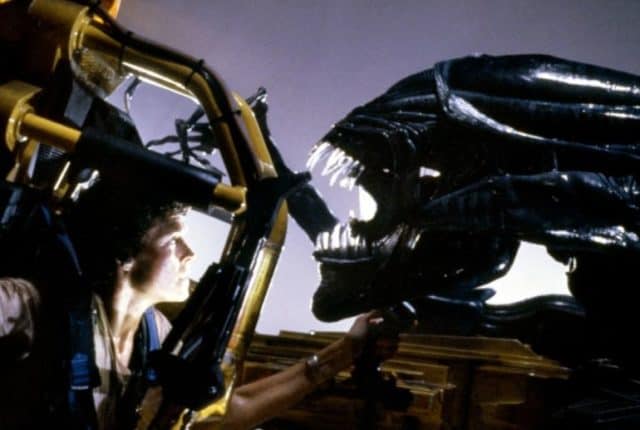
I’m here to amend that choice bit of wisdom, rather than take on it by the horns. Leading up to Alien: Covenant, there has not been a good movie in the franchise since Aliens, and that was over thirty years ago. Alien 3 was wrecked by studio interference, Alien Resurrection chose the wrong director for the movie and Prometheus was a God-awful mess.
And yet, the third and fourth movies — although legendarily terrible — are not nearly as bad as their word-of-mouth reputation suggests. They’re still bad movies, obviously, but neither was the kind of apocalyptic entries so irredeemably awful that they end an otherwise robust franchise. Alien survived those and worse besides, and it still kicking around with a new film ready to hit theaters.
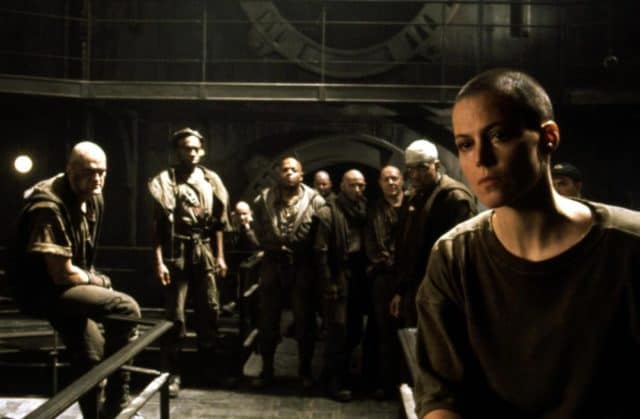
In fact, Alien 3 is very nearly a great movie. An unfortunate narrative turn here, some ill-timed interference there, and you end up reviled. Although still inherently flawed, the 2003 Assembly Cut of the film nearly returns it to its intended glory.
Although overzealous in its approach, I understand — and to an extent appreciate — exactly what Alien 3 was trying to accomplish: bring the franchise back to the basics, by any means necessary. Think about it: the first movie was just “Jaws in Space.” You had a monster “unclouded by conscience, remorse or delusions of morality,” a space ship and a crew of victims. That was it.
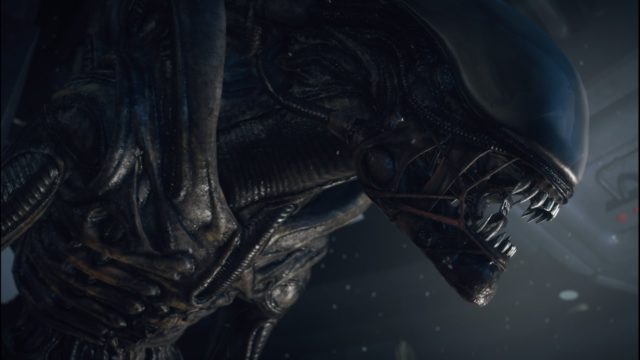
And these weren’t your typical slasher victims either: horny teenagers in a haunted house, helplessly screaming until they were picked off one by one. These were trained and capable adults: on-the-job professionals capable of operating complex machinery, implementing well thought-out plans and improvising weapons when the situation called for it. They were smart people caught in a bad situation who had to work together in order to survive.
The second movie blew up that simple premise into an action-packed spectacle. Instead of one alien, we get an entire planet full of them. Instead of the claustrophobic confines of a mining ship, you have an entire space colony: with multiple, interconnected buildings, levels and endlessly honeycombed passageways for the aliens to enter through. Instead of a typically capable group of adults, you have a specially trained, lethally outfitting military unit whose entire purpose in life is to put a bullet between the other guy’s eyes.
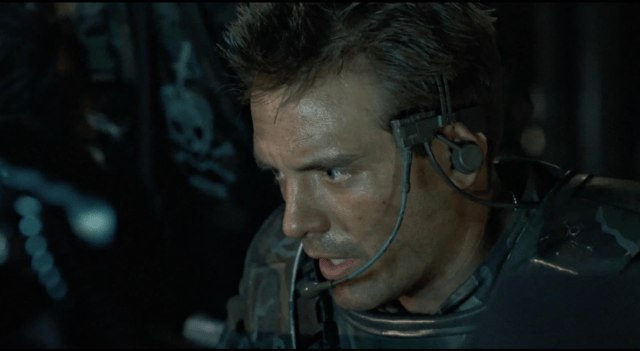
And although monstrously successful — both on its own terms and with the public at large — it strayed away from the singularly unstoppable threat that the alien — the Xenomorph — posed in the first movie. Here it was simply one of many, not a lone apex predator in search of meat. The reproductive cycle was further complicated by the introduction of the Xenomorph Queen and the major players more than tripled with not only Ripley, but Hicks, Newt and the talking half of Bishop surviving through the end credits.
Despite all its moving narrative parts, Alien 3, at its core, was trying to recapture the perfect simplicity of the first movie. The prison planet, its large inmate population and their apocalyptic religion were just window dressing. The focus of the movie was Ripley, the Xenomorph and the pressing walls of an isolated setting.
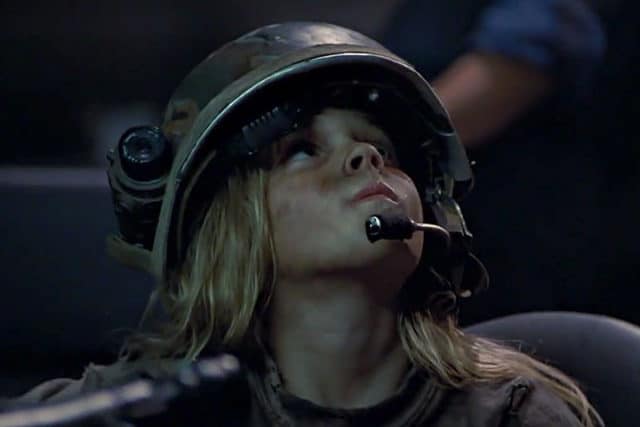
This “back to the basics” goal was unfortunately realized by unceremoniously killing off everybody not named Ripley off screen. And although their passing was met with all the gravity that one would hope for, given how each bonded with Ripley in the previous film, their deaths, autopsies and funerals ate up an inordinate amount of time in a movie already running too long.
That’s the part that most franchise fans trip up on. These weren’t just obstacles in the way of the old status quo: they were natural progressions characters’ lives, themes and overall narrative of the series. These were characters that we had grown to care for not just because of what they meant to Ripley, but what they meant to us personally. There was far more ground to cover with them instead of without them, and a far better use of their presence in the movie than their ship crashing in the opening credits.
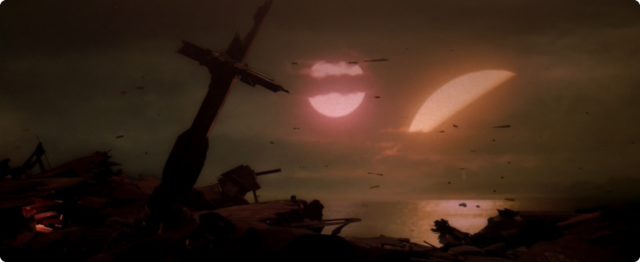
A better movie could have overcome just a massive setback. But remember, we’re not dealing with a strictly “good” movie here. Alien 3 is still bad, even if it has more to offer than just pissing off the Alien fanbase.
What it does have to offer us, though, is twofold. While I enjoyed the nuclear family that survived Aliens, the rest of the franchise’s cast were poorly developed. The space truckers from the first movie, although more than capable of handling their own against the nameless alien threat on board their ship, were little more than functional stock characters. They each had a job title and maybe a notable trait, but nothing all that deep or meaningful, which is fine enough for a space slasher, but hardly ideal.
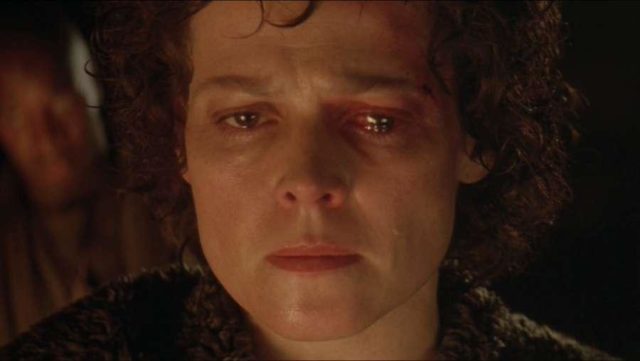
The marines from Aliens were just that: jarheads with next-gen weapons. Some got a good line or two (“Game over, Man! Game over!”), some got good kill in and some just had a fat cigar to chew on whenever the camera panned to him. Again, these were functional characters that helped move the plot and action along, but they were hardly fully-realized people that we grew to care for over the unfolding drama of the film.
The prison colony Fury, however, is rife with interesting characters and dynamic, fully-established relationships. You have Clemans, a former inmate and resident physician with a shockingly affecting backstory and fun repartee with Ripley. Then there’s Dillon, the prisoners’ spiritual leader and an admitted “rapist and murderer of women” whose resentment of Ripley forges into ironclad respect, to the point that him sacrificing his life for her seems to be the only believable course of action for him to take. And then there’s Golic, an already deranged inmate whose encounter with the Xenomorph drives him truly insane, freeing it if only to look upon “the dragon” one more time.
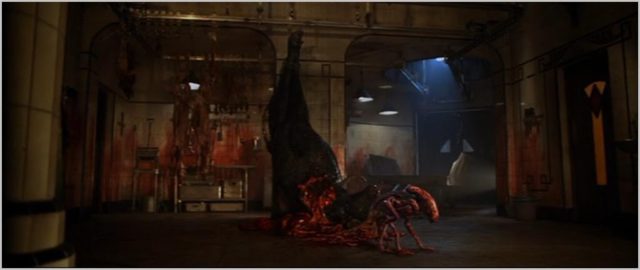
Alien 3 doesn’t just have one or two interesting characters, but an entirely planet full of them, each afforded time to marinate in the story and develop as time goes on. And while most of the excessive runtime is wasted on fancy camera flips and obnoxious dictates from the prison warden, it affords the expansive cast time to interact with one another and reveal themselves as the fully realized characters that they are.
The film is also where the Xenomorph’s ability to appropriate physical attributes from species it gestates in is introduced. The baseline Xenomorph is the result of the creature gestating in a Human. But the “Runner” Xenomorph worked with what it was given: a dog (or, in the Assembly Cut, an Ox). As a result, it gains a faster, sleeker, more bestial design than what we had grown to expect in the previous two movies. And while more people try to ignore this movie entirely, that one facet has carried through to nearly every other film, comic and novel in the franchise.
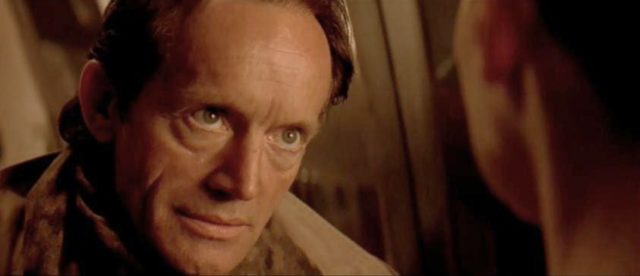
And then there is, of course, the ending: a depressingly pitch-perfect note to end the film, and ostensibly the series, on. Ripley does not get the happy ending she wants, even deserves. Her romantic interest, biological and surrogate children and begrudging friend all die at the start of the movie. Her rebound romance is killed in front of her right after he opened up to her about his sordid past. The remaining inmates — her comrades at arms — are nearly all killed in front of her.
She’s been battered and broken and rebuilt in every film she appears in. She even tells the Xenomorph that “you’ve been in my life so long I can’t remember anything else.” When her rescue comes, it’s in the form of a sick joke: a Weyland-Yutani representative who looks exactly like her expired friend Bishop, lying through his teeth about not harvesting and weaponizing the Queen Xenomorph embryo inside of her.
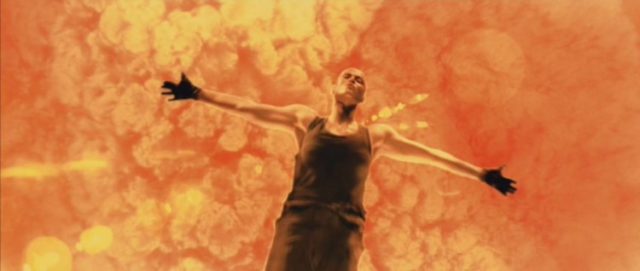
Ripley brings her story to the only logical conclusion she can. She throws herself, and the gestating Queen, into the molten furnaces of Fury. It’s not the ending that everybody doubtless would have preferred — riding off into the sunset with Hicks to raise their adopted daughter Newt with Bishop living in their basement like some kind of wacky uncle — but it’s the only conceivable end her life can come to.
So yes, Alien 3 is a bad movie. It makes a lot of short-sighted mistakes in the name of capturing Alien‘s lightning in a bottle. But it gets as much right as it gets wrong, and that’s more than can be said for most movies in this franchise.
 Follow Us
Follow Us



